Andrew Mulhare from Ballybrittas, Co Laois, has just finished artificially inseminating his suckler cows.
Andrew calves all his cows in the autumn as it is easier for him to artificially inseminate them when they are housed as he works part-time off farm three days a week with a local agri consultant.
Calving went well on the farm, with minimal losses. This year, Andrew noticed he had more twins than usual, with three sets of twins born out of the 33 cows that calved down.
There were also a lot more bull calves born than heifer calves.
Andrew had his silage tested as part of the Footprint Farmers programme and says that this saved him feeding meal to both the maiden heifers and weanling heifers as the silage quality was good coming in at 77.3% DMD.
This was a saving on last year, as Andrew would have been supplementing both of these groups with concentrates then.
He also reported a big difference in intake due to the high quality of the silage.
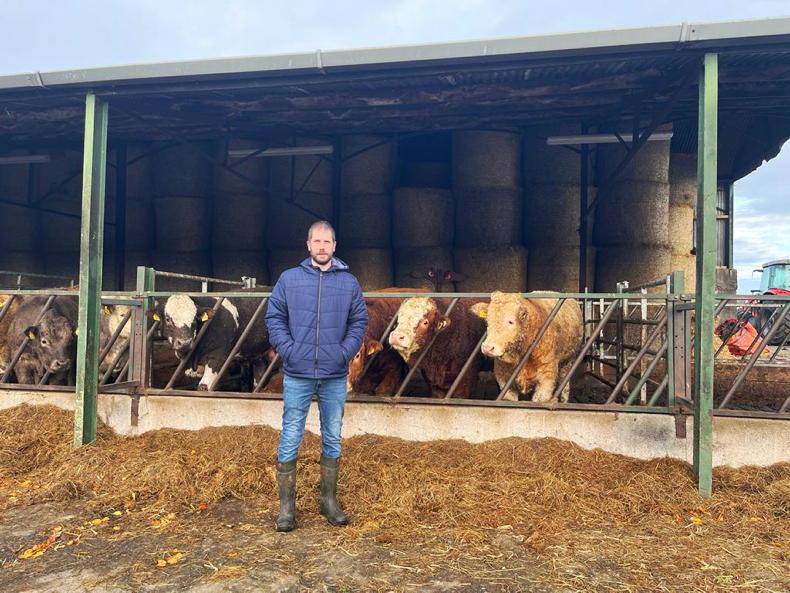
Andrew Mulhare is currently finishing artificially inseminating his cows following a successful calving season.
Andrew says the farm is drying out well and he is going to start slurry spreading this week. He hopes to empty the tanks on silage ground in March.
Andrew also runs a tillage enterprise alongside the suckler cows, and got his winter barley planted last autumn.
The cropping plan for the season ahead also consists of spring barley which will be going for malting, and spring beans.
The beans are a new addition to the rotation this year for Andrew, but he decided to add them to the plan as his neighbour found he was getting good crops of wheat after beans.
Andrew also says that the protein aid was an incentive.

Andrew Mulhare. \ Claire Nash
Farm facts
Farm size: 54ha.Farm location: Ballybrittas, Co Laois.Farm enterprise: suckler beef and tillage. Putting a fertiliser plan in place
In Waterford, Pádraig Connery is happy to be back in the tractor and out to the fields after the winter.
He was busy discing slurry into stubble ground when we spoke, to comply with new nitrates rules on his farm outside Villierstown. He sprayed off his cover crops last week and hopes to get some potash out next week.
Pádraig has recently purchased a new fertiliser spreader and the first job to be done with it will be spreading K on the winter wheat that didn’t get any slurry last autumn.
He is meeting with his agronomist next week to discuss his fertiliser plan for the coming year and, as part of the Footprint Farmers programme, his farm is also currently being scored for biodiversity by the Biodiversity Regeneration In a Dairying Environment (BRIDE) project.
Pádraig is getting ready to start ploughing in the next two weeks, and winter wheat and oats will also have to be sprayed for weeds at the end of the week.
Ideally, Pádraig would have liked to have got this done in the autumn, but due to the wet weather, he was only able to get his winter barley sprayed for weeds and aphids on 21 December.
This year, Pádraig is growing 100 acres of winter barley, 55 acres of winter wheat, 70 acres of winter oats and 100 acres of spring barley for malting. Out of the 100 acres of winter barley, which is the variety Integral, 25 are going for seed. That 25 will become 50 acres in 2024, and this comes with a bonus of €30/t, which is a bonus of approximately €120/acre for Pádraig.
On the beef side of the business, Pádraig was disappointed with the performance of the store cattle in mid-January.
They were all given a lice pour-on last week, and had already got an all-in-one pour-on in mid-December.
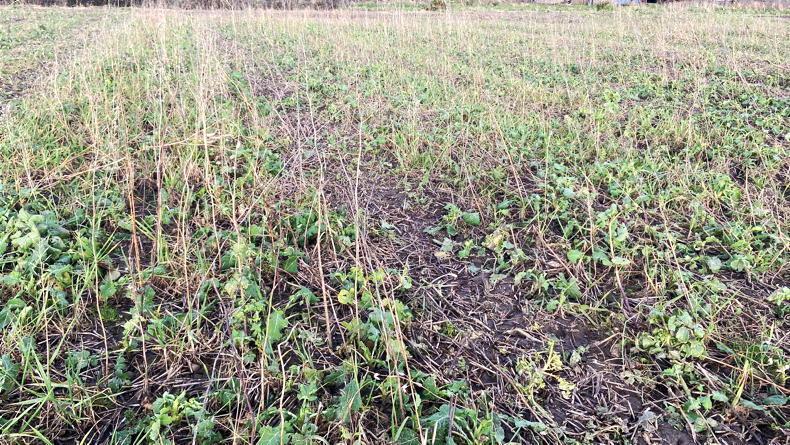
Padraig Connery sprayed off this eight-way cover crop last week. This will be ploughed at the end of February and will be sown with malting barley for Boortmalt.
Pádraig tested his silage and was disappointed with the results which he puts down mainly to an under-grazed first-cut and both first and second cuts getting to dry prior to baling last summer.

Integral seed winter barley post spring beans on Padraig Connery's farm.
Because of the poor silage, Pádraig put the store cattle back on 3kg/head/day from 2kg/head/day.
This shows the importance of getting silage tested to avoid a drop in performance of the animals.

Padraig Connery.
Farm facts
Farm size: 164ha.Farm location: Villierstown, Co Waterford. Farm enterprise: tillage and beef.Tykillen farm
a hive of activity ahead of lambing
In Crossabeg, Co Wexford, Ciara Kinsella is preparing for the lambing season, which is due to get under way on 17 February. Despite a disappointing scanning rate, Ciara is hoping for a successful lambing season.
The ewes were all housed before Christmas, and since six weeks before their lambing date, all ewes have been receiving concentrates. The singles are gradually built up to 0.4kg/head/day, the ewes expecting doubles are receiving up to 0.8 kg/head/day, while the triplet-bearing ewes are receiving up to 1.2kg/head/day.

Ciara Kinsella has her ewes housed since before Christmas.
The sporthorse side of the business is doing well. Ciara purchased a new broodmare last week and has lots of four-year-olds coming on.
Tykillen Farm honey, produced on the Kinsella farm, also had a very successful period over Christmas, with sales on the honey and honey products up 40% on last year.
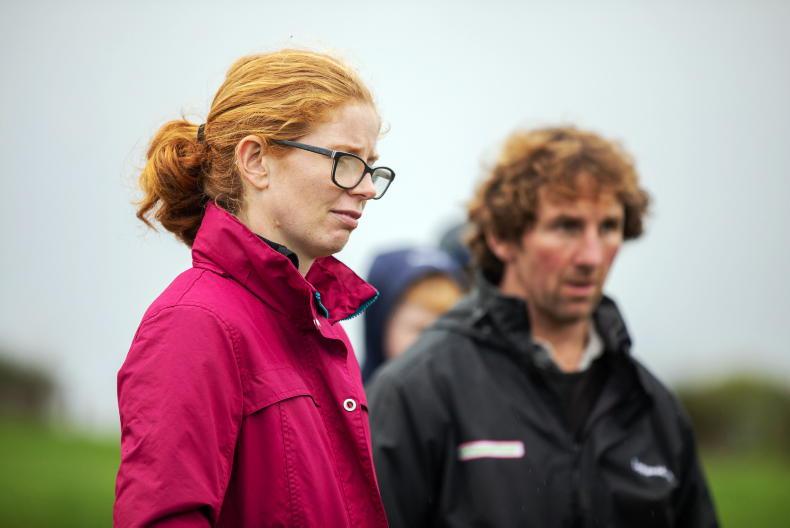
Ciara Kinsella.
Farm facts
Location: Crossabeg, Co Wexford. Farm size: 25ha owned. Farm enterprise: sheep, sporthorses, 6ha forestry and beekeeping.Sheep enterprise: 95 ewes, rams are made up of Charollais, Lleyn and Blue Texel.Focus: improving soil quality, biodiversity and decreasing artificial fertiliser use.
Andrew Mulhare from Ballybrittas, Co Laois, has just finished artificially inseminating his suckler cows.
Andrew calves all his cows in the autumn as it is easier for him to artificially inseminate them when they are housed as he works part-time off farm three days a week with a local agri consultant.
Calving went well on the farm, with minimal losses. This year, Andrew noticed he had more twins than usual, with three sets of twins born out of the 33 cows that calved down.
There were also a lot more bull calves born than heifer calves.
Andrew had his silage tested as part of the Footprint Farmers programme and says that this saved him feeding meal to both the maiden heifers and weanling heifers as the silage quality was good coming in at 77.3% DMD.
This was a saving on last year, as Andrew would have been supplementing both of these groups with concentrates then.
He also reported a big difference in intake due to the high quality of the silage.

Andrew Mulhare is currently finishing artificially inseminating his cows following a successful calving season.
Andrew says the farm is drying out well and he is going to start slurry spreading this week. He hopes to empty the tanks on silage ground in March.
Andrew also runs a tillage enterprise alongside the suckler cows, and got his winter barley planted last autumn.
The cropping plan for the season ahead also consists of spring barley which will be going for malting, and spring beans.
The beans are a new addition to the rotation this year for Andrew, but he decided to add them to the plan as his neighbour found he was getting good crops of wheat after beans.
Andrew also says that the protein aid was an incentive.

Andrew Mulhare. \ Claire Nash
Farm facts
Farm size: 54ha.Farm location: Ballybrittas, Co Laois.Farm enterprise: suckler beef and tillage. Putting a fertiliser plan in place
In Waterford, Pádraig Connery is happy to be back in the tractor and out to the fields after the winter.
He was busy discing slurry into stubble ground when we spoke, to comply with new nitrates rules on his farm outside Villierstown. He sprayed off his cover crops last week and hopes to get some potash out next week.
Pádraig has recently purchased a new fertiliser spreader and the first job to be done with it will be spreading K on the winter wheat that didn’t get any slurry last autumn.
He is meeting with his agronomist next week to discuss his fertiliser plan for the coming year and, as part of the Footprint Farmers programme, his farm is also currently being scored for biodiversity by the Biodiversity Regeneration In a Dairying Environment (BRIDE) project.
Pádraig is getting ready to start ploughing in the next two weeks, and winter wheat and oats will also have to be sprayed for weeds at the end of the week.
Ideally, Pádraig would have liked to have got this done in the autumn, but due to the wet weather, he was only able to get his winter barley sprayed for weeds and aphids on 21 December.
This year, Pádraig is growing 100 acres of winter barley, 55 acres of winter wheat, 70 acres of winter oats and 100 acres of spring barley for malting. Out of the 100 acres of winter barley, which is the variety Integral, 25 are going for seed. That 25 will become 50 acres in 2024, and this comes with a bonus of €30/t, which is a bonus of approximately €120/acre for Pádraig.
On the beef side of the business, Pádraig was disappointed with the performance of the store cattle in mid-January.
They were all given a lice pour-on last week, and had already got an all-in-one pour-on in mid-December.

Padraig Connery sprayed off this eight-way cover crop last week. This will be ploughed at the end of February and will be sown with malting barley for Boortmalt.
Pádraig tested his silage and was disappointed with the results which he puts down mainly to an under-grazed first-cut and both first and second cuts getting to dry prior to baling last summer.

Integral seed winter barley post spring beans on Padraig Connery's farm.
Because of the poor silage, Pádraig put the store cattle back on 3kg/head/day from 2kg/head/day.
This shows the importance of getting silage tested to avoid a drop in performance of the animals.

Padraig Connery.
Farm facts
Farm size: 164ha.Farm location: Villierstown, Co Waterford. Farm enterprise: tillage and beef.Tykillen farm
a hive of activity ahead of lambing
In Crossabeg, Co Wexford, Ciara Kinsella is preparing for the lambing season, which is due to get under way on 17 February. Despite a disappointing scanning rate, Ciara is hoping for a successful lambing season.
The ewes were all housed before Christmas, and since six weeks before their lambing date, all ewes have been receiving concentrates. The singles are gradually built up to 0.4kg/head/day, the ewes expecting doubles are receiving up to 0.8 kg/head/day, while the triplet-bearing ewes are receiving up to 1.2kg/head/day.

Ciara Kinsella has her ewes housed since before Christmas.
The sporthorse side of the business is doing well. Ciara purchased a new broodmare last week and has lots of four-year-olds coming on.
Tykillen Farm honey, produced on the Kinsella farm, also had a very successful period over Christmas, with sales on the honey and honey products up 40% on last year.

Ciara Kinsella.
Farm facts
Location: Crossabeg, Co Wexford. Farm size: 25ha owned. Farm enterprise: sheep, sporthorses, 6ha forestry and beekeeping.Sheep enterprise: 95 ewes, rams are made up of Charollais, Lleyn and Blue Texel.Focus: improving soil quality, biodiversity and decreasing artificial fertiliser use. 









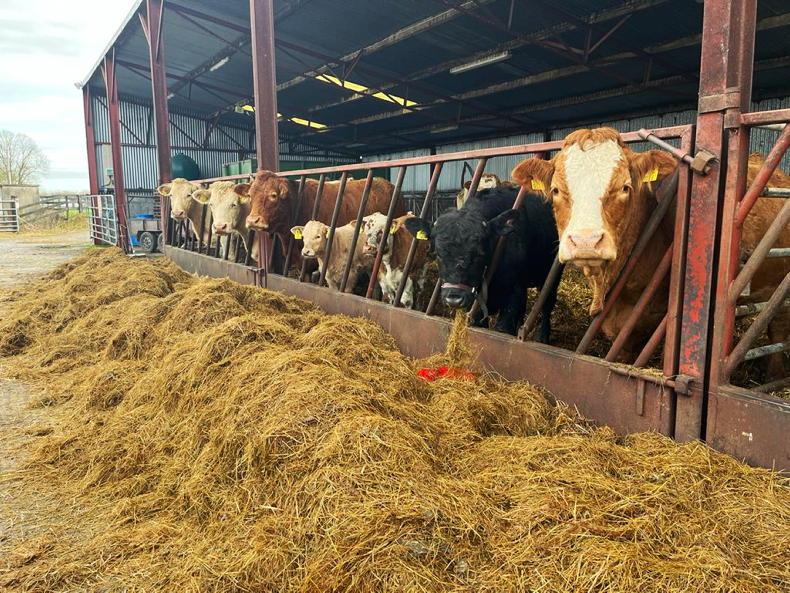



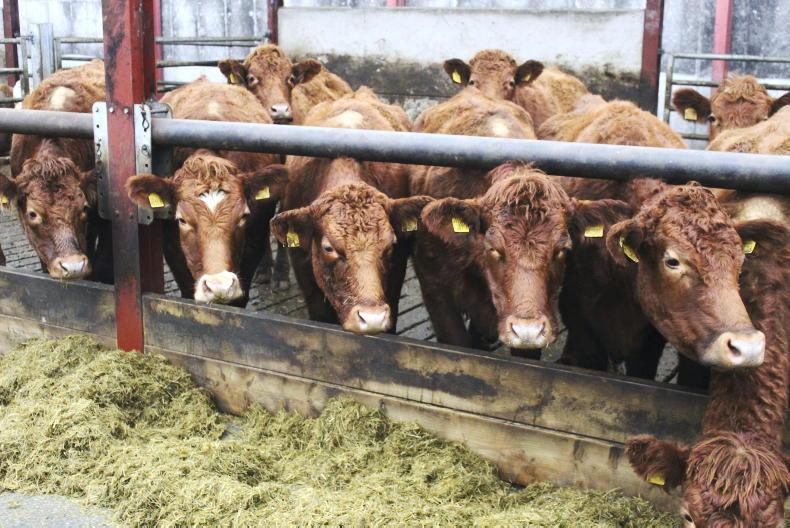
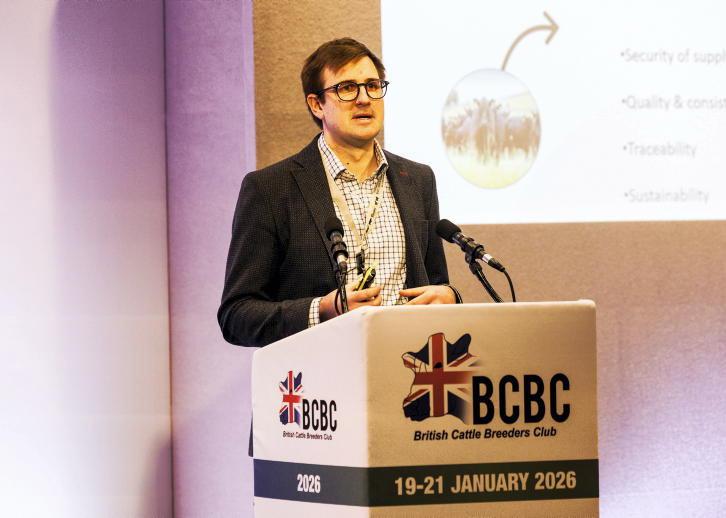
SHARING OPTIONS